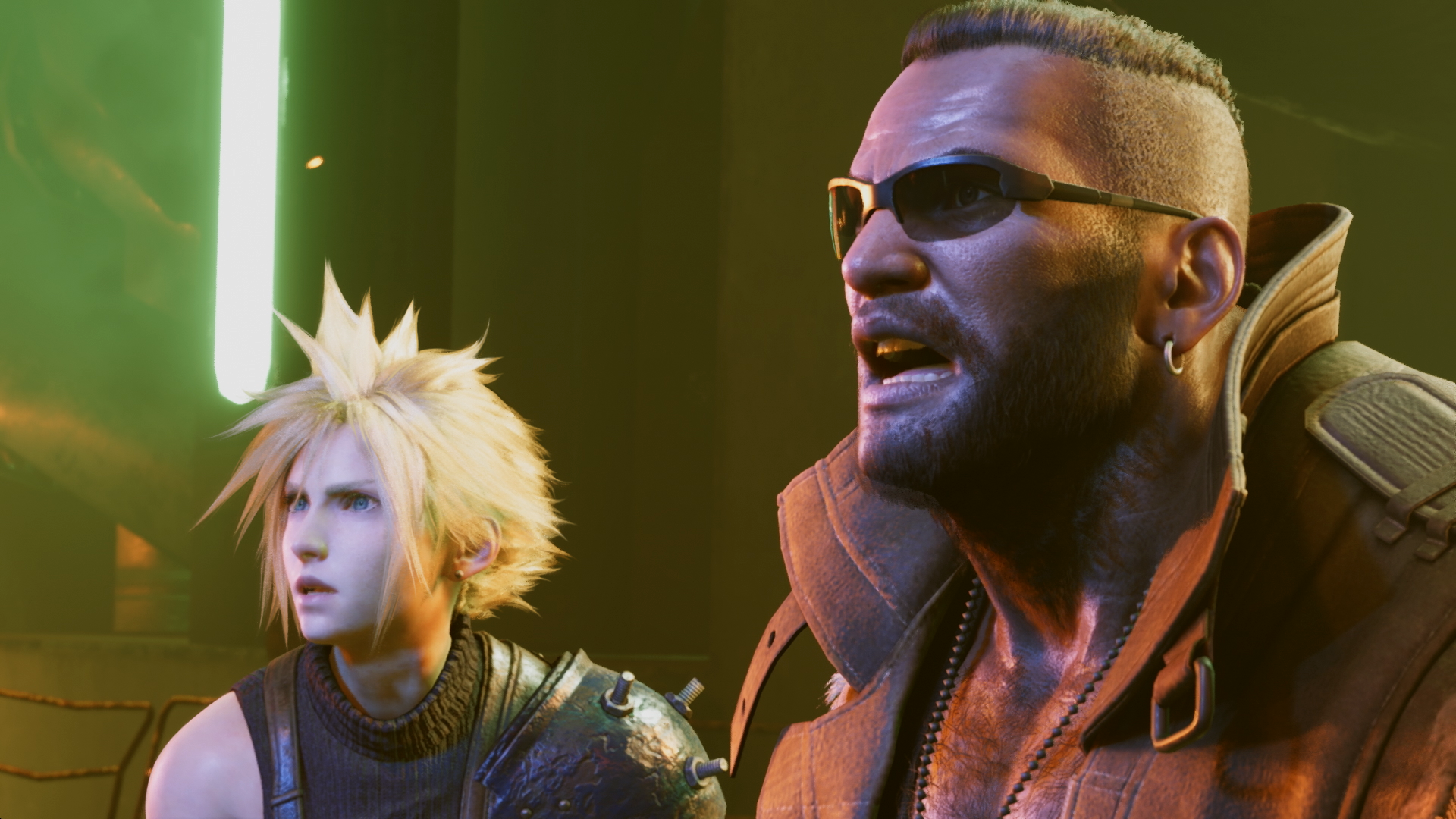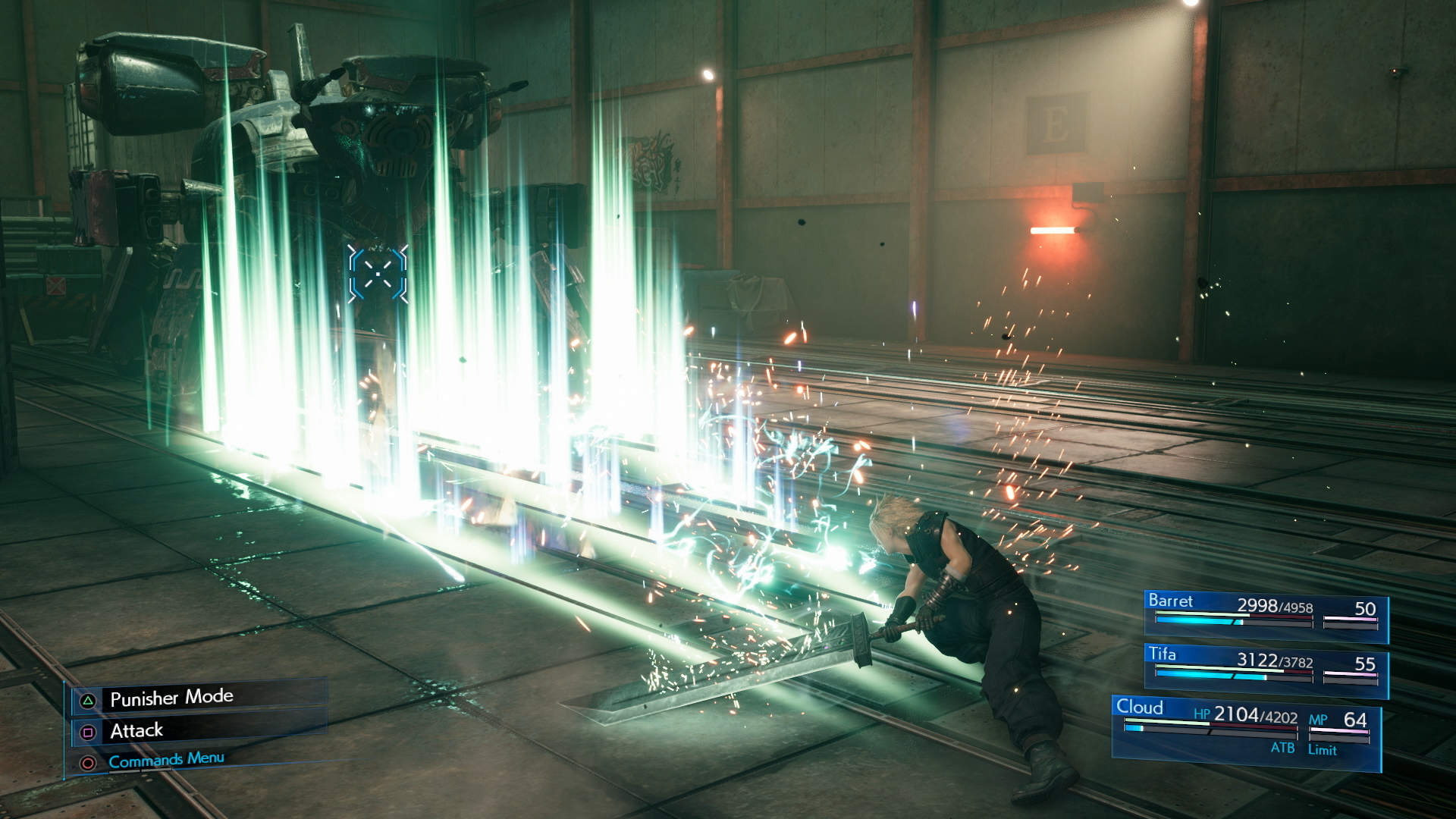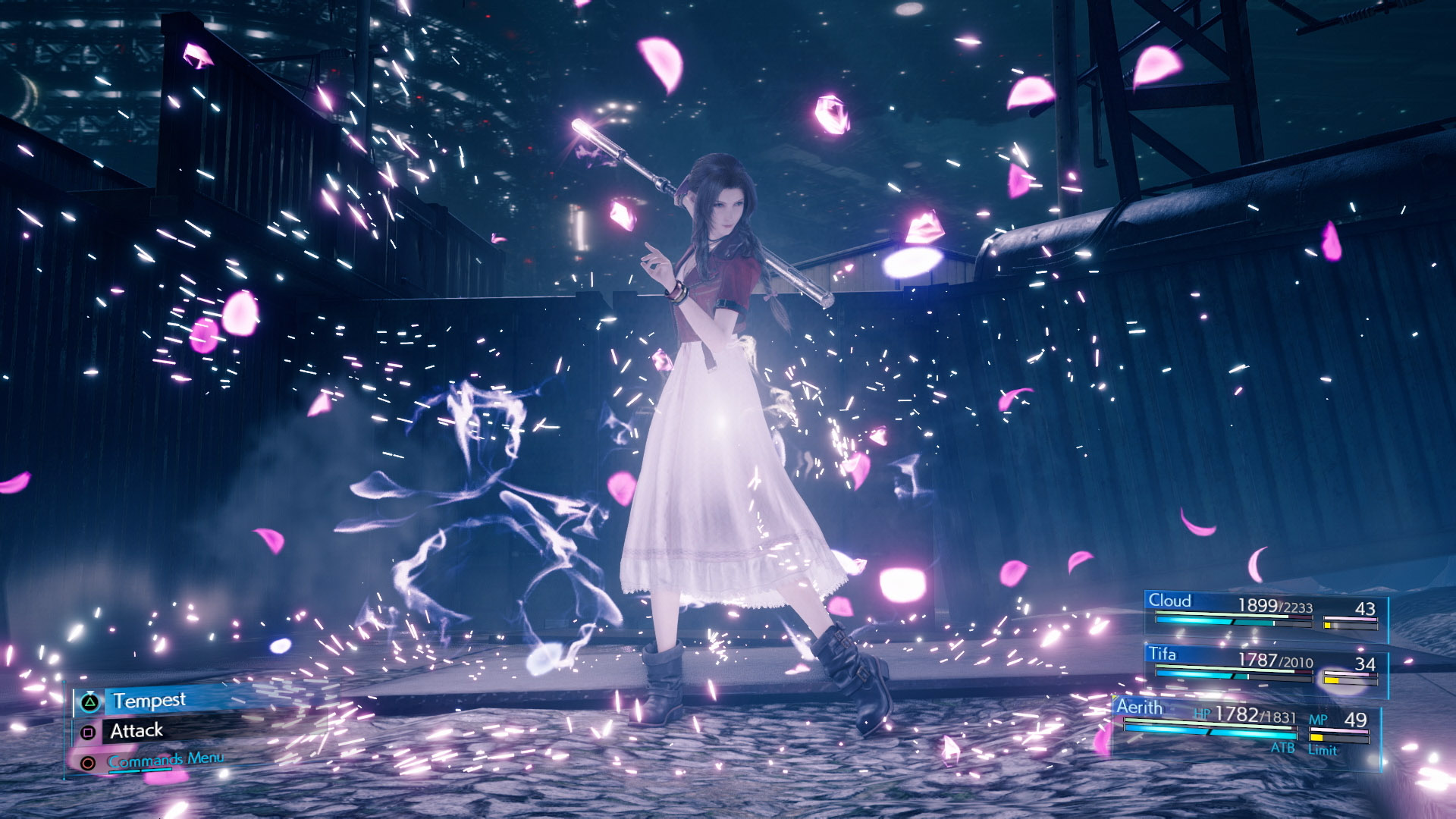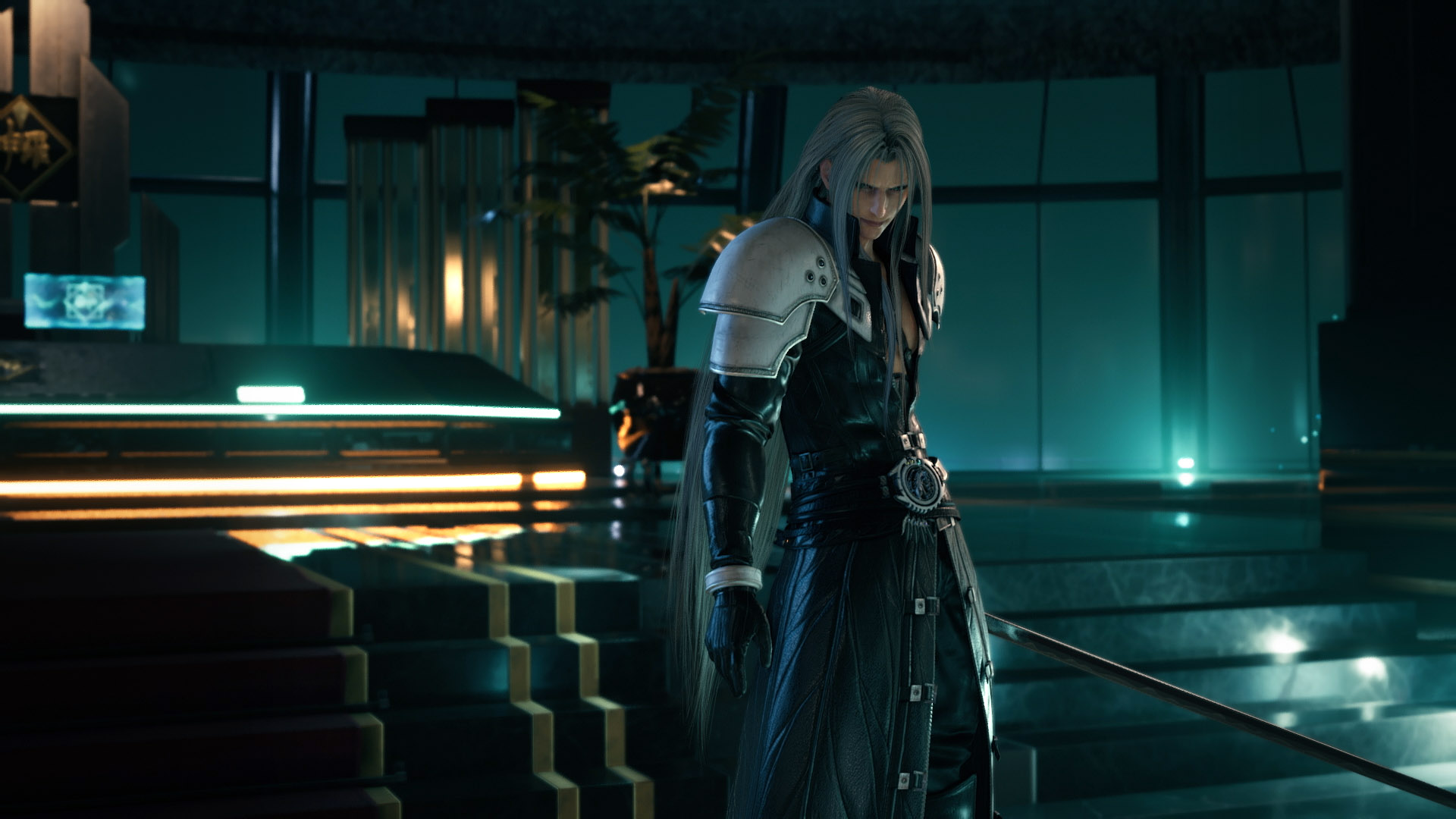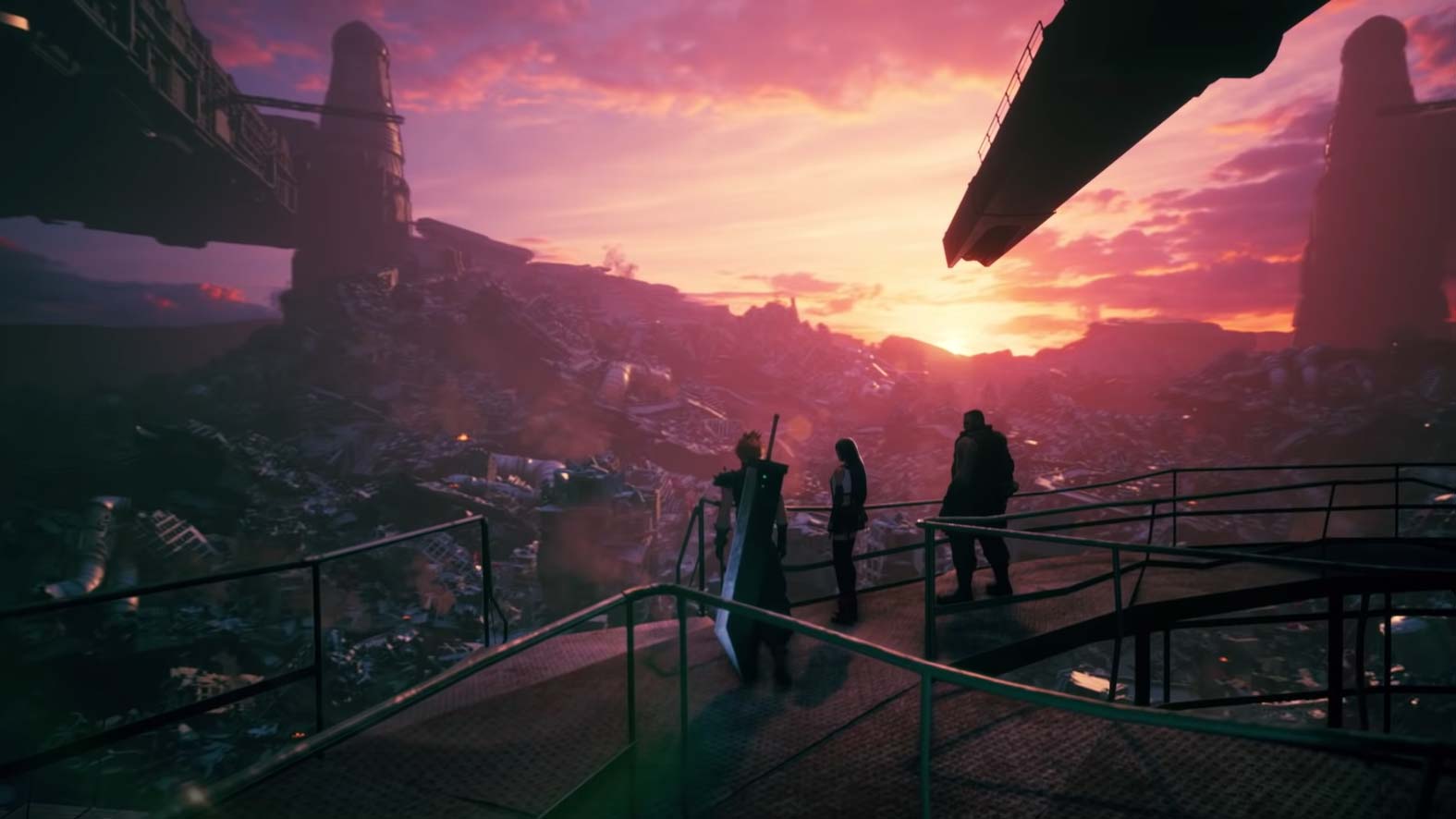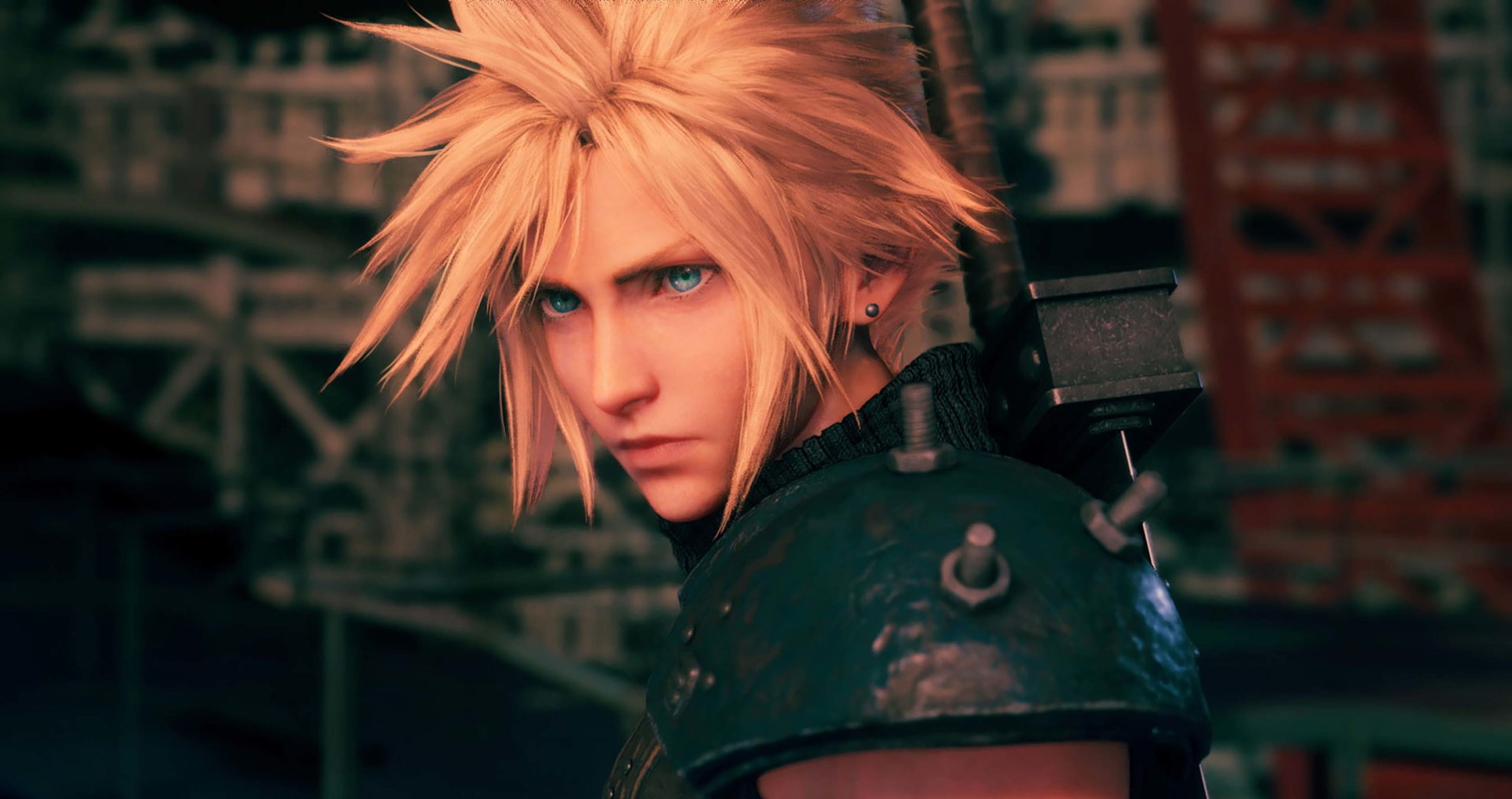
In many ways, Final Fantasy VII Remake feels like a game that shouldn’t exist.
To start, reinterpreting a beloved classic for a modern age is always an incredibly tricky venture that risks alienating lifelong fans. That’s especially true for Final Fantasy VII, a landmark PlayStation Japanese role-playing game that’s widely credited with popularizing the genre worldwide. For years, developer Square Enix seemed to feel the same way, repeatedly shutting down the idea of a VII remake and even going so far as to say that doing one would likely kill the entire Final Fantasy franchise.
Even when it was eventually confirmed to be in development, Final Fantasy VII Remake appeared to be woefully mismanaged, with key members of the original development team initially working with a lesser-known external studio.
What followed was two-and-a-half years of silence between first gameplay trailer and subsequent re-reveal, which certainly didn’t quell any fears. That’s also to say nothing of the questionable decision to remake VII across an unknown number of games — the first of which is set exclusively in Midgar, a section that accounted for maybe six hours of the original 35-hour VII experience.
When considering all of that, it’s easy to see why fans might be apprehensive going into Remake. As someone who considers Final Fantasy VII his favourite game of all time, these are all concerns I definitely had in spades. That’s why I’m beyond overjoyed to say that, seemingly against all odds, Final Fantasy VII Remake is absolutely outstanding.
Somehow, Square Enix has managed to faithfully capture the spirit of the original game while improving on it in several essential ways. What’s more, the company’s familiar-but-fresh philosophy to reimagining Final Fantasy VII actually smartly redefines what a remake of a video game can really be.
A touching reunion
Above all else, VII‘s enduring popularity can be attributed to its story and characters, which Remake wonderfully brings to even greater heights. On the surface, the basic premise remains the same. Stoic and brash mercenary Cloud Strife gets pulled into eco-terrorist group Avalanche’s war against a megacorporation that’s siphoning the life force of the planet in its everyday business. In 1997, VII‘s environmentalist themes were something of a revelation, and now, they’re unfortunately more relevant than ever.
But Remake is careful not to repeat the mistakes of the past. At this point, it’s no secret that the original VII suffered from a spotty English translation plagued with various typos, stilted dialogue, misinterpreted plot points and even the misspelling of a major character’s name. In Remake, however, these are no longer issues, thanks to a new and genuinely well-written script and rock-solid translation.
This leads to countless memorable moments throughout Remake‘s story. I chuckled at the insults Cloud and Avalanche leader Barret throw at one another as they begrudgingly carry out their mission together. I smiled warmly as Cloud and his longtime friend Tifa, another member of Avalanche, wistfully reflected on their childhood. I was even moved by the ways in which kindhearted-yet-sassy flower girl Aerith flirts with Cloud and slowly draws him out of his shell. To bring all of this to life, Remake employs a stunning mix of gorgeous, well-directed cutscenes, snappy-yet-nuanced dialogue and splendid vocal performances.
Remake even drastically improves on the character of Barret, who was originally depicted as a Mr. T-esque racial stereotype. Admittedly, there are still bits of that here, but by honing in on his struggles to lead a group of freedom fighters and raising a young daughter, Remake gives Barret some truly heartwrenching scenes that depict him as much more of a down-to-earth and endearing person.
As a whole, Remake offers plenty of these kinds of impactful character beats for its central characters, which is all the more impressive when you consider that only a fraction of the original game’s story is being tackled here. Cloud, especially, is put through a satisfying arc of learning to open up to the world, all while saving his larger character development from VII for future installments. To further illustrate his growth, Remake also takes the opportunity to properly develop Avalanche teammates Biggs, Wedge and Jessie — once disposable characters in VII — into fully fleshed-out characters.
Remake even offers a few dozen sidequests that provide further worldbuilding. While initially trite (i.e. kill three large rats or find three lost kittens), they eventually become far more interesting as they start exploring the everyday plights of the people of Midgar. Putting clear faces to those who are oppressed by Shinra makes Midgar feel much more like a living, breathing world, which, in turn, makes Avalanche’s mission feel all the more meaningful.
A spectacular blend of old and new
When Remake was confirmed to feature action-oriented combat, some diehard fans expressed concerns about deviating from VII‘s classic, tried-and-true turn-based gameplay. On the other hand, many gamers have responded well to modern RPGs with real-time battles, such as The Witcher 3: Wild Hunt and even Square Enix’s own Final Fantasy XV.
That’s why it’s so remarkable that what’s ultimately featured in Remake is made up of the best of both worlds. In fact, I’d go so far as to say this is the developer’s most satisfying, thrilling and tactical combat system to date.
On a basic level, Remake allows you to run around, dodge and block in real-time, which immediately offers far more freedom than traditional turn-based combat would allow. At any time, you can swap between party members mid-combat, while pressing X will launch ‘Tactical Mode’ to temporarily slow time so you can issue specific commands to characters. This marriage of real-time movement and the ability to determine characters’ next moves through a turn-based-like system is an extremely effective way of keeping combat both fast-paced and strategic.
During all of this, you’ll be able to perform standard combos with simple taps of the Square button. While these deal some damage, their main purpose is to fill a Final Fantasy XIII-like ‘Stagger’ metre. Once maxed out, the enemy will become momentarily stunned and take more damage than usual. Overall, there are many different ways to stagger an enemy, such as exploiting elemental weaknesses and — thanks to the ability to move around and position characters — systematically taking down individual appendages of an enemy.
That’s easier said that done, though. Cleverly, Remake adds even more strategic elements to the fray via an ingenious reworking of Final Fantasy‘s signature ‘Active Time Battle’ (ATB) turn-based combat system. In VII and other classic FF titles, ATB required characters to wait for a bar to fill before they could perform a task. Remake, on the other hand, gives each character two ATB bars that automatically fill over time at a slow pace, or can be charged more quickly by unleashing the aforementioned Square attacks.
Once filled, you can expend an ATB bar to use magic, items or character-specific abilities. Spells, in particular, also still require MP, so there are two costs to consider when casting them. Overall, the revamped ATB system means you can’t be as liberal in using certain moves, which is a clever way to keep combat feeling fresh. Moreover, ATB creates a gratifying risk-reward system. Since attacks and curative moves both require ATB, you’ll often have to make a split decision on whether you should heal or continue applying pressure to the enemy.
Naturally, each character has their own unique abilities that make them all feel terrific to play with. Cloud excels at dishing out heavy damage up close, while Tifa is all about unleashing flurries of punches and kicks to quickly stagger enemies. By contrast, Barret’s gun arm makes him efficient — and, in some cases, essential — when it comes to peppering distant enemies. Finally, Aerith is best-suited for hanging back and supporting the party with healing and other buffs.
Throw in VII‘s returning Materia system — items that can be levelled up and allow a character to cast spells, summon monsters, increase their stats and more — and character customization becomes even more robust. These mechanics make for consistently engaging fights, but they especially shine during Remake‘s multi-stage boss encounters, which are completely breathtaking in their scale and exhilarating to actually fight.
All the while, Remake‘s gameplay is elevated further still by an absolutely magnificent soundtrack. Longtime Final Fantasy composer Nobuo Uematsu’s score for the original VII is an all-time classic, and thankfully, Masashi Hamauzu (Final Fantasy XIII) and Mitsuto Suzuki (Final Fantasy XIII-2) have taken those masterpieces and created some of the best remixes I’ve ever heard.
Still, Remake wouldn’t quite be the same without Uematsu’s direct involvement, which is why it’s so wonderful that the maestro himself composed Remake‘s main theme, “Hollow,” a sublime melancholic piece that deftly encapsulates Cloud’s emotional journey.
“This guy are sick”
In spite of everything Remake does right, though, it does ultimately stumble with some of its new content. Specifically, there are a number of notable pacing and storytelling issues that stem from these changes. With respect to the former, some chapters gratingly feel like extra padding to artificially extend the game’s length.
Often, these added areas bring the plot to a screeching halt and don’t even offer much in the way of meaningful character moments. In particular, sections of VII that were once a few screens have been turned into entire hour-long dungeons. It’s a superfluous design choice that kills the momentum leading up to some of Remake‘s best chapters. It’s a testament to the strength of the visuals, music, characters and combat that these filler segments are, thankfully, not complete slogs to go through.
However, it’s hard to be as lenient with how Remake shakes up VII‘s story. While some purists will take issue with even the most minute changes, I’m normally more receptive to alterations, provided that they’re sufficiently explored. The problem with Remake, though, is that it doesn’t always do this well. After serving as an excellent retelling of the Midgar section for much of its runtime, Remake abruptly starts spending its final two hours going through maddeningly vague sequences that feel removed from the rest of the experience.
In particular, Remake does a remarkably poor job with Sephiroth, the central villain of VII. If you’ve never played VII then you’re out of luck here, as Remake just assumes you’re intimately familiar with the silver-haired soldier’s backstory and motivation. Making this even worse is Remake‘s tendency to throw a bunch of direct references to events that happen later in the original VII story. Little of this will make sense to newcomers, while even longtime fans will be left rather puzzled by the sudden twists and turns.
Having said that, after putting a great deal of thought into the ending and what it means for the future of the Remake saga, I’ve grown quite enamoured with how bold and ambitious it is. Without diving into massive spoiler territory, Square Enix seems to be asking how much a game’s legacy should shape its remake, resulting in aspects of Remake feeling surprisingly meta and even forcing you to question your relationship to Final Fantasy VII as a whole. Replaying the game on Hard Mode (which offers nice little tweaks of boss encounters) with knowledge of these twists and I appreciated how well some — but certainly not all — of these aspects were established throughout the story.
While Remake‘s overall approach to VII‘s story has proven controversial so far, I’ve always been of the mind that remakes should take risks, as the original works — and your fond memories of them — will always exist. To be sure, none of this is meant to excuse the clumsy ways in which Remake presents its big ideas, nor does it make the endgame any less incomprehensible to all but the most devout of VII fans. For all these stumbles, though, I’m utterly fascinated by the implications of Remake‘s story and come away far more excited for future games than I was going in.
On our way
With Final Fantasy VII Remake, Square Enix had to justify taking a JRPG that’s relatively quaint by modern standards and turning it into a massive, multi-part affair. Fortunately, the company has done a marvellous job doing so. While some of the new material could have been handled better, the majority of Remake‘s changes are in service of bringing back and refining everything that works about the original game while doing away with elements that did not.
There are, undoubtedly, lingering questions surrounding the scope of the project as a whole — namely, how many parts it will ultimately end up being. That said, Square Enix has built a phenomenal foundation with Remake, and if each installment requires a few years to maintain that level of quality, then I’m more than happy to wait. To quote the original Remake reveal trailer: “the reunion at hand may bring joy… it may bring fear… but let us embrace whatever it brings … for they are coming back.”
Final Fantasy VII Remake is now available as a timed exclusive on PlayStation 4. A free playable demo containing the game’s entire first chapter can be downloaded from the PlayStation Store.
MobileSyrup may earn a commission from purchases made via our links, which helps fund the journalism we provide free on our website. These links do not influence our editorial content. Support us here.

